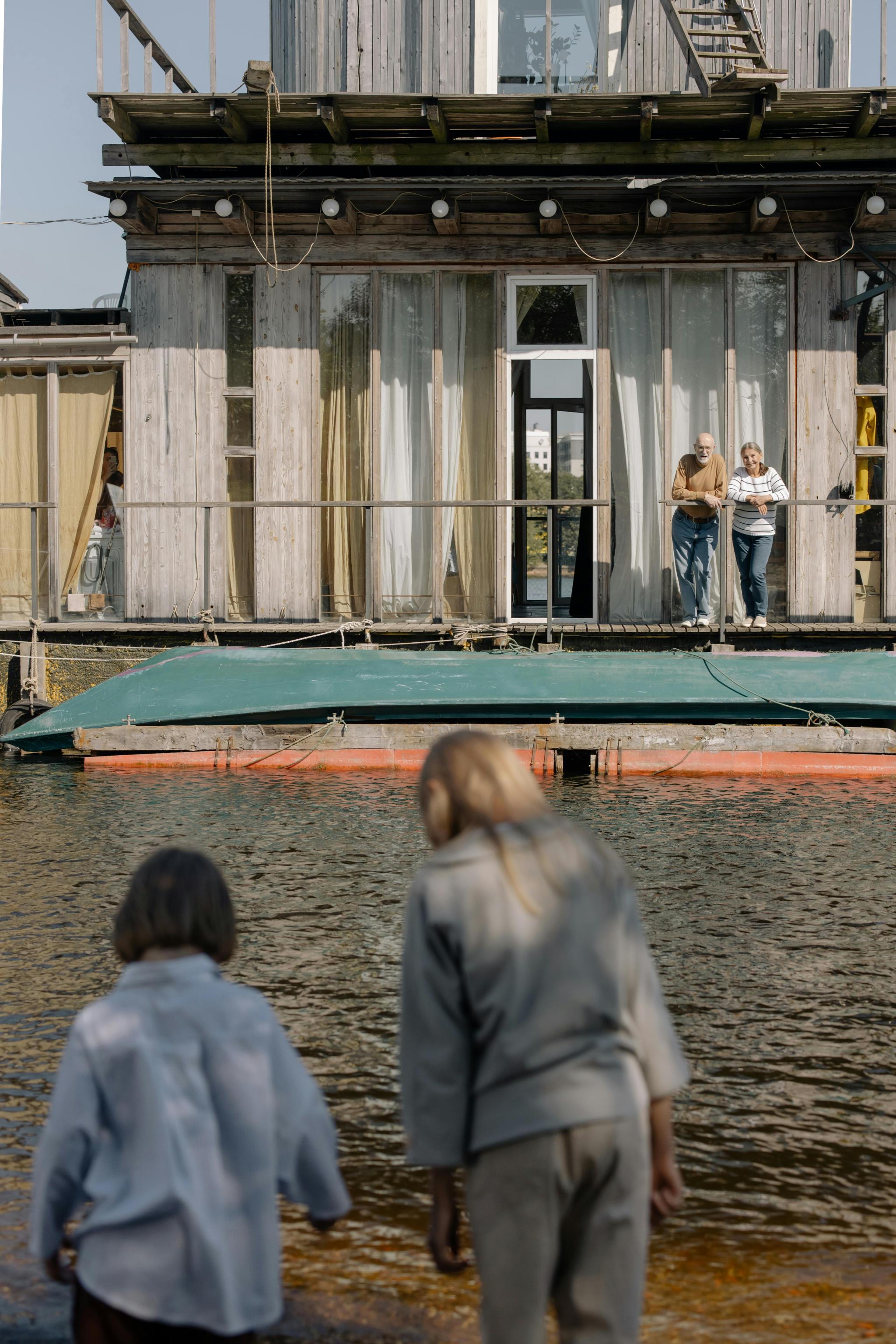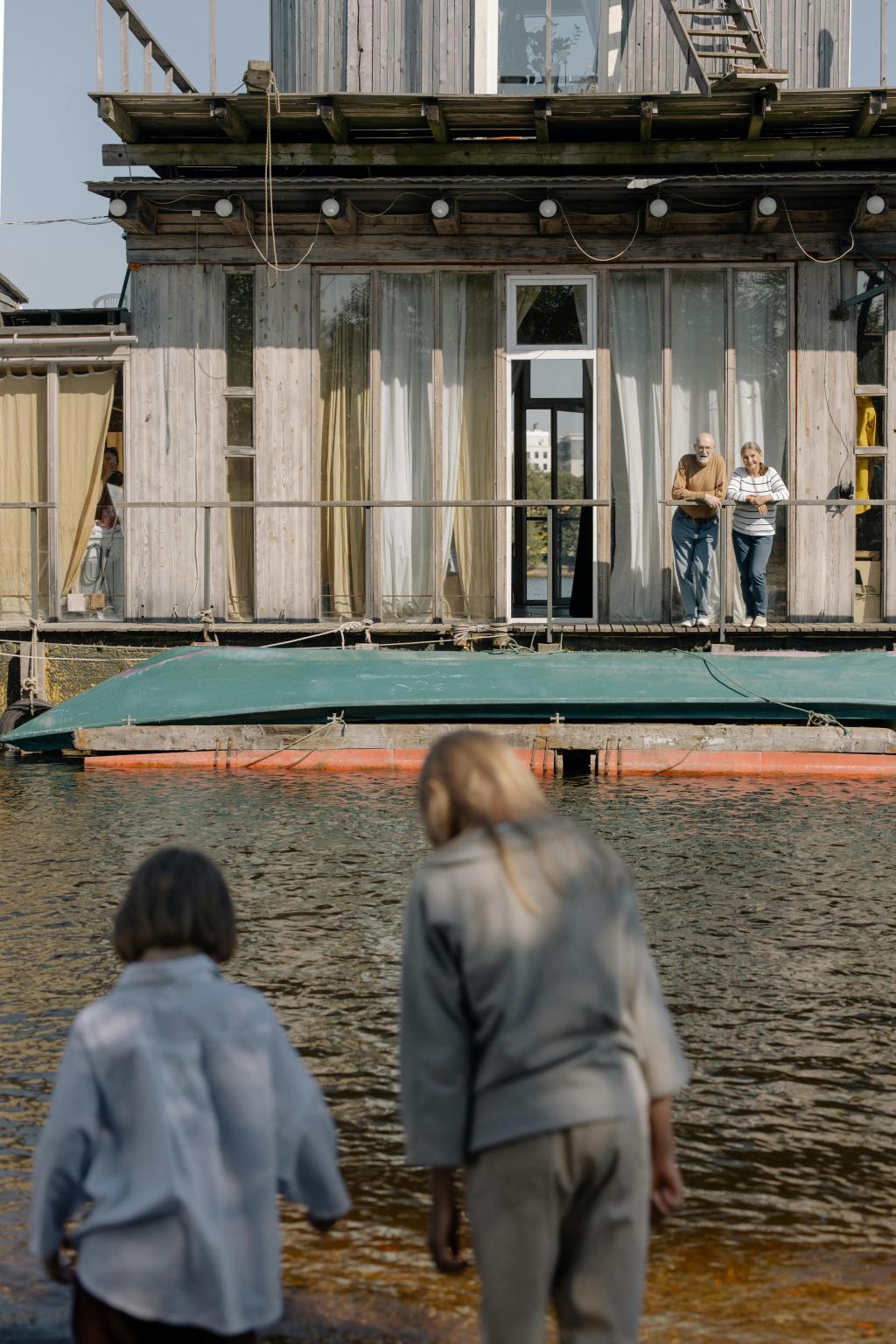PCF Talk #57 – Agenda Monthly Meeting – Hybrid
Note: We are meeting in room West.530, not the usual space in the East wing!
This is a hybrid event, please join in person, or via the zoom link below!
Theme: Coastal Cities (PCF Thematic Research Group)
9:00 - 9:15
Introduction of the Day: Fransje Hooimeijer (TU Delft, PCF)
The coastal theme is characterized by the longue duree of coastal cities. Taking the historical perspective and following long lines into the future regarding soil and water dynamics under climate change, ecological crisis and urbanization.
I Public Event
9:15- 9:45
Presenter: Barbara Bo dal Zanon (TU Delft, Environmental technology and Design)
Title of Presentation: Floating Developments: the Next Chapter in the tradition in Dutch Delta Management?

As climate change accelerates, the Netherlands faces increasing challenges from rising sea levels and extreme weather events, leading to floods and droughts. Traditional water management strategies, focused on controlling water through infrastructure such as dikes and barriers, are increasingly questioned due to rising uncertainties. This study explores the fuzzy boundary between land and water, focusing on floating urban development as part of a broader paradigm shift towards climate adaptation.
Drawing on recent projects that integrate ecological values, natural processes, and spatial planning into flood defence systems, we argue that a paradigm shift is underway. These initiatives suggest a move away from strictly engineered water management solutions toward more adaptive and multi-functional approaches. Within this changing landscape, we examine whether floating urban development can be part of this transition, addressing its potential and limitations in scaling up as a viable response to climate resilience. The shift toward a spatial order that accommodates delta dynamics and is founded in the deltaic system is not a deviation from the Dutch tradition; rather, it continues a long history of working with water rather than against it. Understanding how floating urban development fits within this evolving paradigm will be key to determining its role in the future of Dutch water management.
9:45- 10:15
Presenter: Tara Kanj (TU Delft, Environmental technology and Design)
Title of Presentation: Deltaic systems
In low-lying deltaic territories, two critical challenges—the threats of climate change and the rigid, monodisciplinary approach to addressing them—have led to an over-reliance on engineered control over nature. Grey infrastructure provides short-term protection but often disregards the long-term spatial and ecological consequences of such interventions. These static solutions fail to account for the evolving relationship between human settlements, landscapes, and natural processes over time.
This research examines this co-occurrence through the lens of disasters, arguing that catastrophic events serve as pivotal moments of learning, where both tangible and intangible transformations in the landscape take place. It is in their aftermath that the most significant paradigm shifts and advancements in engineering and spatial design have emerged.
This presentation focuses on a key perspective that arises from this approach: the varying ways disasters are understood and managed across cultures. Disaster response differs significantly depending on cultural context, particularly in the distinction between risk cultures, which proactively manage and mitigate potential threats, and disaster cultures, which prioritize response and adaptation in the aftermath of catastrophic events. This discussion explores how these paradigms shape flood management strategies in deltaic regions, introducing a spectrum to classify different national approaches.
The Netherlands, often regarded as the epitome of a risk culture, historically functioned as a disaster culture—or what Petra van Dam terms an amphibious culture—before transitioning into a highly engineered flood management system. In contrast, nations like Thailand exemplify a disaster culture, while the United States occupies an intermediary position. This presentation examines these contrasting approaches, questioning how different societies conceptualize and address disasters, the repercussions of these approaches, and how they have evolved over time.
10:15 - 10:30
Break
II PCF Community Engagement
10:30 - 11:00
Moderator: Fransje Hooimeijer (TU Delft, PCF)
Presenter: Nebojsa Jeremic (Politecnico di Milano, MSc Architecture and Urban Design)
Presentation title: Amphibious Waterfronts: Coastal Adaptation of Urban Areas to Rising Sea Levels
Urban coastal environments worldwide are facing significant challenges due to climate change and global warming, which are driving sea level rise and reshaping coastal geographies. These changes threaten the survival of coastal cities, causing land loss, infrastructure damage, and forcing residents to abandon their homes in favor of safer inland areas, leading to frequent mass migrations. In response, many seaside cities and island nations are implementing various strategies, such as constructing dikes and physical barriers, relocating populations to higher ground, or exploring innovative solutions like floating cities. However, if sea levels continue to rise at current rates, these measures may not be sufficient to preserve traditional ways of life or maintain the functionality of coastal habitats.
This thesis aims to explore sustainable strategies for coastal cities to adapt to rising sea levels while ensuring urban development continues without population displacement or ecosystem disruption. The research focuses on innovative urban planning and architectural approaches, including amphibious and floating cities, to propose a design-driven solution. Through an analysis of the mechanisms behind sea level rise, a critical review of existing defense strategies, and historical and contemporary examples of human-nature coexistence in aquatic environments, this thesis seeks to establish strategic principles for designing future amphibious cities.
11:00 - 11:30
Moderator: Fransje Hooimeijer (TU Delft, PCF)
Presenter: Shubham Majumder (Politecnico di Milano, MSc Architecture and Urban Design)
Presentation Title: Living with Water. Adaptive Strategies for Coastal Resilience in Darukhana
The global threat of sea level rise presents significant challenges that extend beyond environmental concerns, threatening economic stability and human livelihoods. This thesis, “Living with Water,” investigates the projected global economic impacts of sea level rise over the next fifty years, focusing on the compounding issue of urban densification. Mumbai, as India’s most populated and economically vital city, epitomizes this dual challenge due to its dense urban fabric and vulnerability. This study analyzes Mumbai’s geographical and infrastructural edge conditions, emphasizing the Eastern waterfront-a largely underutilized buffer zone that lacks comprehensive resilience strategies compared to the more developed Western coast.
Darukhana, a key area within the Eastern waterfront, is identified as particularly vulnerable due to its socio-economic complexity, infrastructural deficiencies, and significant industrial heritage. Known for its shipbreaking industry and environmental pollution, Darukhana highlights the intersection of industrial activity and human settlement, intensifying the risks posed by rising sea levels. This thesis proposes adaptive strategies for Darukhana’s distinct architectural typologies, exploring their reuse and adaptation to promote resilience and coexistence with water. The study aims to transform Darukhana from a high-risk zone to a model of sustainable urban adaptation through community-centric planning, infrastructure resilience, and environmental remediation. By integrating innovative architectural solutions and participatory design, this research contributes to a broader understanding of how high-density coastal cities can respond to climate challenges. Ultimately, it provides actionable insights that balance socio-economic needs with sustainable development, presenting Darukhana as a prototype for future coastal resilience.
11:30 - 11:40
Break
III PCF lighthouse projects and new opportunities
11:40 - 12:00
Group discussion and announcements (In person and online!)

